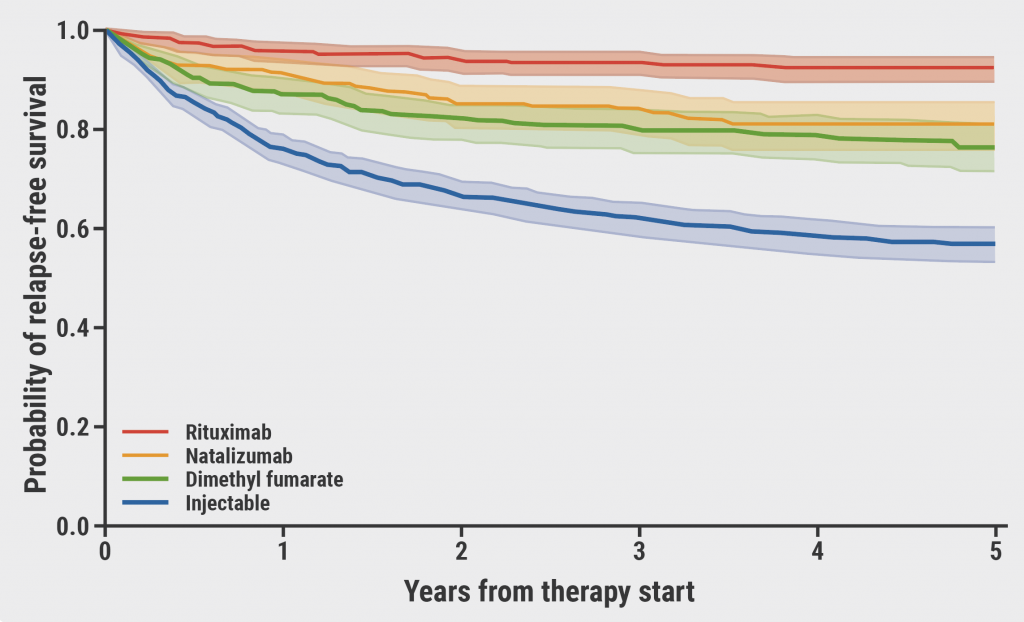Notably, the study found that most MS therapies do not predispose to a worse COVID-19 outcome.
This observation is "encouraging and reassuring because these MS therapies do decrease the immune system. This should give patients confidence to continue their MS therapies during the COVID-19 pandemic," Dr. Robert Fox with the Cleveland Clinic in Ohio told Reuters Health by phone.
Two MS therapies, however - rituximab and ocrelizumab - do appear to increase the likelihood of more severe COVID-19 requiring hospital admission, the study found. Taking steroids within two months prior to a COVID-19 diagnosis was also associated with worse COVID severity.
MS patients on these therapies need to "redouble their efforts to try to prevent contracting COVID," Dr. Fox said.
The researchers analyzed data from a diverse group of 1,626 MS patients (mean age 47.7 years) infected with the disease and participating in the COVID-19 Infections in MS Registry.
Nearly three quarters (74%) were women and 80% had relapsing-remitting MS; about 62% were non-Hispanic White, 21% Black, and 12% Hispanic/Latinx. About half had one or more comorbid condition, most commonly hypertension, obesity and diabetes.
The overall mortality rate was 3.3%, "which is roughly what we see in the background population so that's reassuring," Dr. Fox told Reuters Health.
However, increased MS disability (needing assistance to walk or nonambulatory) was independently associated with increased likelihood of worse COVID-19 clinical severity (hospitalization, ICU admission and ventilatory support) and death.
Other risk factors for worse COVID-19 outcomes in the MS population included older age, Black race and cardiovascular comorbidities.
"Knowledge of these risk factors may improve the management of patients with MS and COVID-19 by helping clinicians identify patients requiring more intense monitoring or COVID-19 treatment," the researchers write in JAMA Neurology.
In terms of the COVID-19 vaccine, Dr. Fox said, "MS is not a contraindication to getting the vaccine and indeed we are recommending to all of our MS patients to get the COVID vaccine when they are eligible."
The study had no commercial funding.
SOURCE: https://bit.ly/3sckMhE JAMA Neurology, online March 19, 2021.
By Megan Brooks
Posted on
Previous Article
« Bedside leucocyte esterase testing can help rule out septic arthritis in native joints Next Article
Roche drops Huntington’s disease trial with once-promising drug tominersen »
« Bedside leucocyte esterase testing can help rule out septic arthritis in native joints Next Article
Roche drops Huntington’s disease trial with once-promising drug tominersen »
© 2024 Medicom Medical Publishers. All rights reserved. Terms and Conditions | Privacy Policy


